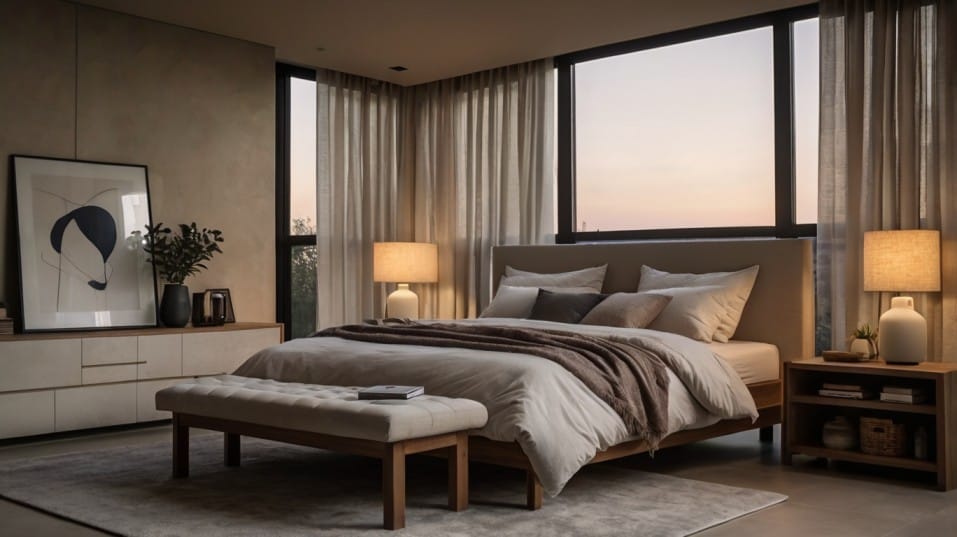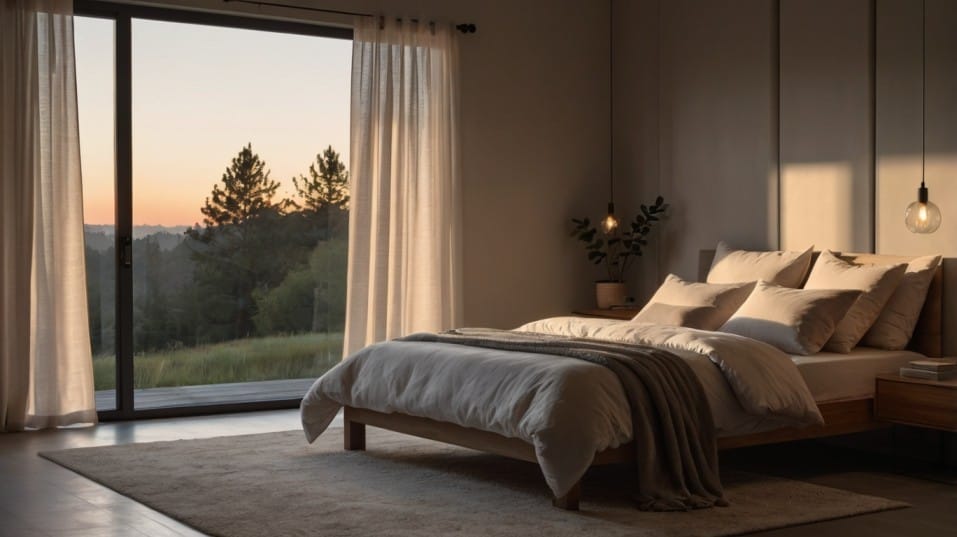Sleep Hygiene: What It Means and How to Improve Yours
Tired of feeling tired? Learn how small sleep hygiene tweaks can boost your energy, recovery, and focus—no gadgets or gimmicks needed.

Ever wonder why you still wake up groggy even after a full night’s sleep? The answer might not be in gadgets or supplements—it’s in your daily habits.
Sleep hygiene is the science-backed way to reset your sleep, boost your energy, and finally feel rested when you wake up. It’s simple, powerful, and built into your routine. Once you get it right, better sleep becomes effortless.
What Sleep Hygiene Really Means
At its core, sleep hygiene is about behaviors. It’s the day-to-day stuff that directly affects how easily you fall asleep, how deeply you rest, and how restored you feel in the morning. Think of it as sleep training—but for adults.
Sleep doesn’t happen in a vacuum. Your brain and body are constantly scanning your environment for cues about what time it is and what they should be doing.
These cues—called zeitgebers—include light, temperature, movement, food, and social activity. Good sleep hygiene means managing those cues so they sync up with your natural circadian rhythm.
Your circadian rhythm is your 24-hour internal clock. It controls everything from your energy levels and hormone release to body temperature and digestion.
When this rhythm is stable and supported, sleep becomes easier, deeper, and more refreshing.

The Role of Light, Temperature, and Timing
Sleep isn’t just about what happens in bed—it’s shaped by the signals you send your body throughout the day.
Three of the biggest influencers are light, temperature, and timing. These environmental and behavioral cues can either support or disrupt your natural rhythm.
Light
Let’s start with the heavyweight: light. Light is your brain’s main signal for time. Bright light in the morning tells your brain to suppress melatonin (your sleep hormone) and boost cortisol (your get-up-and-go hormone).
That’s good. But at night? Light does the opposite of what you want. It delays melatonin release and keeps your brain wired.
The fix is simple but powerful: get outside early in the day. Aim for 10–15 minutes of natural light within an hour of waking up. Even if it’s cloudy, outdoor light is stronger than indoor bulbs.
At night, dim things down. Swap overheads for lamps. Turn on night mode. If screens are non-negotiable, use a warm color filter. Your brain will get the message: sleep is coming.
Temperature
Temperature matters, too. Your body cools slightly at night as part of your natural sleep process. A hot room can block that drop and lead to restlessness or shallow sleep.
The sweet spot for most people is around 65–68°F (18–20°C). If that’s not doable, try breathable sheets, light sleepwear, or a fan to keep air moving.
Timing
Timing is where a lot of people trip up. If your sleep and wake times shift by hours every day, your internal clock never knows what to expect.
That instability creates poor sleep architecture—less deep sleep, more middle-of-the-night wakeups, and groggier mornings.
Going to bed and waking up at consistent times, even on weekends, trains your brain to enter sleep mode on command. It’s not rigid—it’s effective.
Evening Habits That Work With Your Brain
Your body doesn’t slam into sleep mode—it ramps down. If you’re answering emails, gaming, or arguing on Reddit 10 minutes before bed, your brain is still in high alert mode. That’s why wind-down routines are essential.
A good wind-down starts 30–60 minutes before you want to be asleep. It doesn’t need to be elaborate. The key is consistency and calm. Try turning off major lights. Shut down screens.
Do something analog: stretch, shower, journal, or read something low-stakes. The point is to send repeated, low-stress signals that say “It’s safe to relax now.”
If you’ve trained yourself to only “relax” with alcohol or TV, your body probably isn’t relaxing at all. Alcohol disrupts sleep cycles, especially REM sleep, and TV can be mentally stimulating.
Swap in something that soothes and supports sleep—like music, breathwork, or low-effort fiction. Reframe bedtime as something to ease into, not collapse into.
Daytime Choices That Boost Nighttime Results
What you do during the day has a direct line to how well you sleep at night. If you’re stuck under artificial light, inactive, and constantly stressed, your body doesn’t know when to power down.
Movement
Movement is a major daytime ally. Regular exercise, especially in the morning or early afternoon, improves deep sleep quality. You don’t need to crush yourself.
A brisk walk, a short workout, or even light stretching gets the job done. Just avoid high-intensity training right before bed—it spikes cortisol and raises body temperature.
Caffeine
Then there’s caffeine. It has a half-life of 5–7 hours, which means that afternoon espresso you swear “doesn’t affect you” might still be in your system at midnight.
Cut off caffeine after noon. If you need a boost later, go for a walk or hydrate first. Energy without sleep is borrowed time.
Food Timing
Food timing helps too. Eating heavy or spicy meals late at night can trigger digestion-related wakeups. Aim to finish dinner at least two hours before bed. If you’re hungry before sleep, go for something light and protein-based.
Stress Management
And yes—stress management counts. Racing thoughts are one of the most common barriers to sleep. You don’t need to meditate for an hour, but get your brain used to switching gears.
A short breath-focused routine or brain dump journal entry can clear the mental noise. It’s not about silence—it’s about space.
Make Your Bedroom a Sleep-Only Zone
Your bedroom is not your office, gym, or entertainment center. It’s your sleep sanctuary. The more your brain associates that space with deep rest, the faster it responds when you’re in it.
Start by removing distractions. Get the TV out. Charge your phone away from the bed. If you need it for an alarm, use do-not-disturb and dim the screen.
Your brain links environments with behavior—so make your bedroom a cue for sleep, not stimulation.
Bedding matters, too. You don’t need a luxury setup, but if your pillow gives you neck pain or your sheets trap heat, fix it.
Small comfort upgrades pay off in real sleep quality. Same with sound: block street noise with white noise, earplugs, or a fan. The less your brain needs to filter out, the deeper you’ll sleep.
Final Thoughts: Make Sleep Your Edge
You don’t need a perfect schedule or a monk-like routine. You just need consistent signals that align your lifestyle with your biology.
Better sleep hygiene isn’t a punishment—it’s a power move. More energy. Better recovery. Sharper focus. It’s not hype. It’s just science applied the right way.
Start simple. Pick one thing tonight—dim your lights early, ditch the late scroll, or set a bedtime you can actually stick to.
Small moves lead to big wins. Sleep isn’t just something you “get through.” It’s something you train for. Start now. Sleep smarter. Wake up ready.




